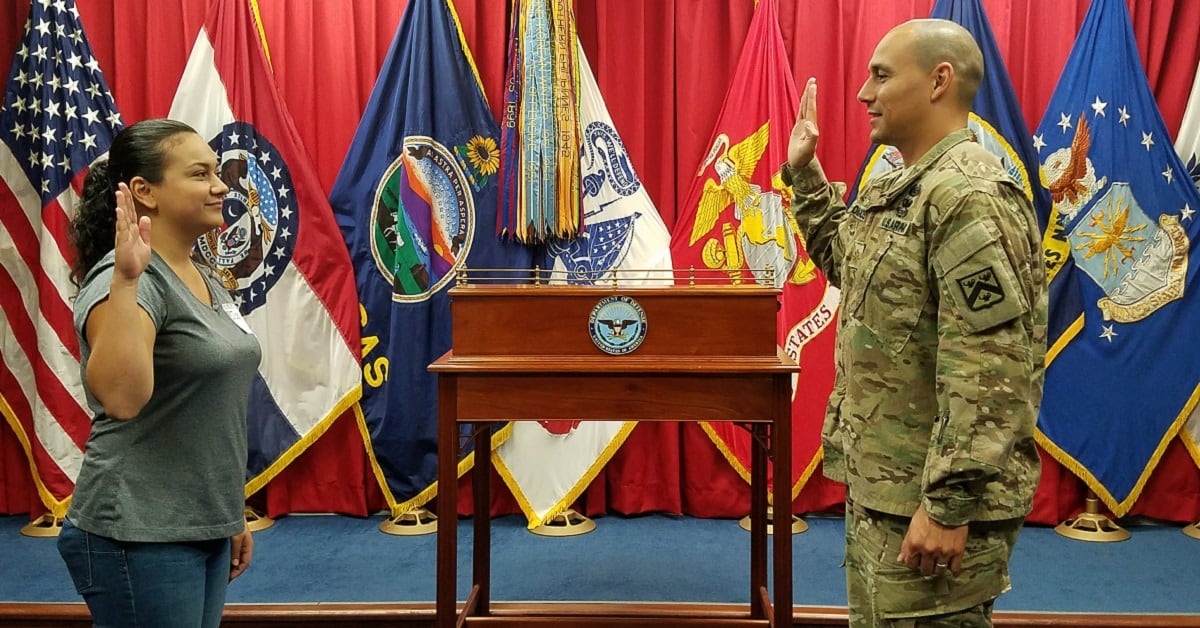On the heels of a Military Times story about two Army daughters who were denied entry into the Air Force and Army based on notations in their dependent medical records, four readers told Military Times that their sons had been kicked out of Navy recruit training for similar reasons.
While the Air Force and Army merge dependent medical records with service medical records, the Navy doesn’t do the same for new sailors and Marines who follow their parents into military service. However, Navy medical providers still can access those records, a spokeswoman has since clarified, which could result in service members being shown the door based on diagnoses or evaluations never shared with the dependent or their parents.
One mother emailed Military Times to say her son, who would have been the fourth generation in his family to serve in the Navy, was removed from recruit training at Naval Station Great Lakes, Illinois, for a condition “when he was 2 years old and 4 years old, when he was struggling with his dad being deployed.”
Another mother said her son was forced out of recruit training one week after he entered on Dec. 13, 2016, at age 20, because of counseling he received when he was 11 or 12.
“His father and I were divorcing and thought it was in the best interest of our three children to go through counseling,” she said in an interview. “It was situational ... there were no medications ordered, nothing.”
RELATED

She said it was clear the medical provider had access to the records because he was citing counseling on several specific dates.
The Air Force and Army began merging prior dependent medical records with service member records in 2004. The Navy initially told Military Times that it doesn’t merge records. After Military Times asked about comments from parents whose children were forced out of recruit training, officials then clarified that its medical staffers still could have access to the dependent records in the electronic system.
This sets military dependents apart from their civilian counterparts, who don’t come into the military with a previous electronic health record.
“We determined that a provider at a recruit training command would only access a dependent’s [electronic health record] under certain circumstances,” said spokeswoman Mariah Felipe, such as red flags raised as part of a person’s application, if the individual was injured during boot camp or if someone was applying to a rate that required meeting specific physical requirements.
However, the Navy mother interviewed by Military Times said her son “was going through the routine medical exam at recruit training when they noticed he had a dependent medical record,” she said. “He was not in a specialized rating requiring medical clearance, nor did he have an injury.”
She also saw a note in her son’s medical record from his counselor that stated at the time he “was stable, and had good coping skills” after four or five counseling sessions in a six-month period, and that no further counseling was warranted, unless the family chose to seek it later.
“The Navy pushes so much, especially on the medical side, that if you have any problems whatsoever, to seek help. So when all this came up, I said, ‘Are you kidding me?’
“If I had known it would affect my child like this, I never would have put him in counseling” through the military, she said.
Army Maj. Rudy De La Rosa and his wife Mia felt the same way; they thought they were providing emotional support for their daughters when they took them to counseling to help them cope with multiple moves and his multiple deployments to Afghanistan. Until their oldest daughter was forced out of Air Force basic training and accused initially of fraudulent enlistment, they had no idea there were notations in both daughters’ counseling files that could bar them from joining the military.
They contend the notations overstated events that were either extremely mild, or never happened. Despite multiple clean bills of health from civilian and DoD behavioral health providers, their daughters have been denied waivers to enter the military.
Karen has covered military families, quality of life and consumer issues for Military Times for more than 30 years, and is co-author of a chapter on media coverage of military families in the book "A Battle Plan for Supporting Military Families." She previously worked for newspapers in Guam, Norfolk, Jacksonville, Fla., and Athens, Ga.





